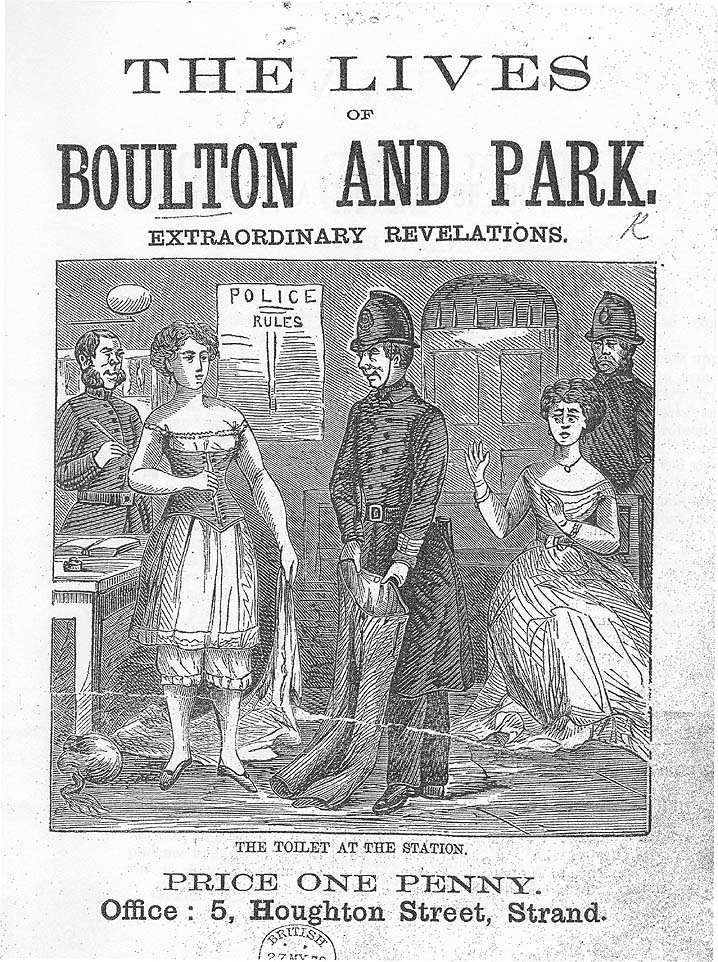February, apparently, is LGBTQ History Month, so it seems a good time to share the fantastic story of Stella “Star of the Strand” Boulton and Fanny Park: flamboyant performers, suspected criminals, and all-round great girls.
The duo (pictured) may as well have leapt out from the pages of an Angela Carter novel. Before their arrest in 1870, they were cross-dressing vaudevillians famed for their campy melodramas and operettas, filling the theatres of London and beyond with adoring, guffawing fans. Contrary to popular belief, their Victorian audiences weren’t comprised of sexually repressed bigots desperate to rip open a bodice or two. They knew that Boulton and Park were male, laughed uproariously at their lewd jokes, and couldn’t care less.
The police, however, after keeping them under surveillance for a year – evidently unhappy that they ‘powdered their faces and flounced up and down the Strand and the Burlington Arcade, eyeing up the men’ – endeavored to arrest them. In April 1870, they finally did. Stella and Fanny appeared in court under allegations of sodomy; however, those who attended their trial (including at least twenty drag queens and their supporters) were overwhelmingly supportive of the convicted, who were let off scot free, the jury unable to prove that they had engaged in sodomy (male-male sex).

15 years later, the Labouchere Amendment made it possible to prosecute suspected homosexuals without needing to prove their engagement in anal sex (termed as “gross indecency”). Under this law, Boulton and Park would most likely have been imprisoned and sentenced to hard labour, a la Oscar Wilde. Although, in reality, they made it out of the courtroom unscathed by the law, their trial was not without consequence. Stella’s husband, thirty-year-old Lord Arthur Clinton, MP, was disgraced to see his name in newspaper articles about the case, and killed himself. Unfortunately, despite the surprising Victorian liberalism which the case of Boulton and Park reveals, suicide was an ending all too common for the LGBTQ population, in stories both fictional and real.
